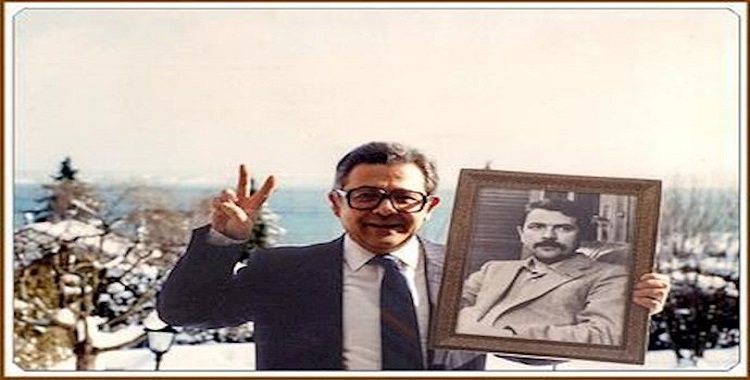U.S. State Department Releases Names of Dr. Kazem Rajavi’s Assassins

Written by
Mohammad Sadat Khansari
U.S. State Department Releases Names of Dr. Kazem Rajavi’s Assassins
The United States State Department released the names of 13 individuals it had designated on August 21 for their role in assassinating Dr. Kazem Rajavi, a leading human rights figure and the representative of the National Council of Resistance of Iran (NCRI) in Switzerland.
“On August 21, the U.S. Department of State announced visa restrictions on 14 Iranian individuals for their involvement in gross violations of human rights on behalf of the Iranian regime, the world’s leading state sponsor of terrorism. This action was taken pursuant to Section 7031(c) of the Department of State, Foreign Operations, and Related Programs Appropriations Act, FY 2020, making ineligible for entry into the United States officials of foreign governments and their immediate family members about whom the Secretary of State has credible information of involvement in a gross violation of human rights. This action includes visa restrictions on 13 officials involved in a brutal and intricately planned assassination carried out in Switzerland in 1990 as part of Iran’s ongoing worldwide campaign of violence and terrorism. These 13 individuals, who posed as Iranian diplomats, were acting under the highest orders of their government to silence opposition and show that no one is safe from the Iranian regime, no matter where they live,” read the State Department’s statement.
It announced the names of these terrorists as follows:
Ali Reza Bayani Hamadani, Said Danesh, Ali Hadavi, Saeed Hemati, Mohammad Reza Jazayeri, Mohsen Sharif Esfahani, Ali Moslehiaraghi, Naser Pourmirzai, Mohsen Pourshafiee, Mohammad Said Rezvani, Mahmoud Sajadian, and Yadollah Samadi.
On August 21, Mrs. Maryam Rajavi, the NCRI’s President-elect, welcomed the U.S. decision in designating the assassins of Prof. Rajavi and described it as an “essential and effective step to combat terrorism and to safeguard the security of European countries.”
“The designation should be complemented by blacklisting of those who ordered this crime: Ali Khamenei; the incumbent ministers of Intelligence and Foreign Affairs, Ali Fallahian and Ali Akbar Velayati; and Hassan Rouhani, the incumbent secretary of the Supreme Security Council. Prosecution, punishment, and blacklisting of the murderers of Prof. Rajavi and the clerical regime’s leaders has been postponed for years by European countries, emboldening the regime to resort to further bloodshed and terrorism in Europe.” Mrs. Rajavi added.
Background:
The Iranian Resistance, as the only viable alternative to the mullahs’ regime, has been the target of the regime’s terrorist plots. The failed bombing plot against the NCRI’s annual “Free Iran” gathering, and the subsequent arrest of the regime’s diplomat terrorist Assadollah Assadi in 2018, and the regime’s ongoing disinformation campaign, further show the regime’s utter fear of its organized opposition, the NCRI and the People’s Mojahedin Organization of Iran (PMOI/MEK).
Dr. Rajavi’s assassination case is one the strongest cases of the regime’s terrorism abroad, because the operatives, their commanders and those who made this decision in Tehran were identified. In addition, the motive behind this assassination is clear, the date of entry and departure of the terrorists was clear.
In 2006, an investigating magistrate in Switzerland issued an arrest warrant for Ali Falahian, then the regime’s Minister of Intelligence and Security (MOIS), for “carefully planning” the assassination of Dr. Rajavi. In addition, it was revealed that 13 terrorists, who had diplomatic passports, were able to go back to Iran, without being tried for their crime.
This designation, years after the Iranian Resistance’s endeavors to mobilize the international community to stand against the regime’s terrorism abroad and human rights violations in Iran, is the first step to hold all the regime’s officials to account for their ongoing human rights violations.
In this regard, Dr. Rajavi’s assassination case, as someone who was seeking justice for the victims of the 1988 massacre of over 30,000 political prisoners in Iran, mostly members of the MEK, is indeed considered as part of the case of the regime’s crime against humanity in 1988. Therefore, holding the regime’s authorities to account for this crime is the beginning of serving justice for all the victims of the clerical regime and stopping the regime’s terrorism abroad.

